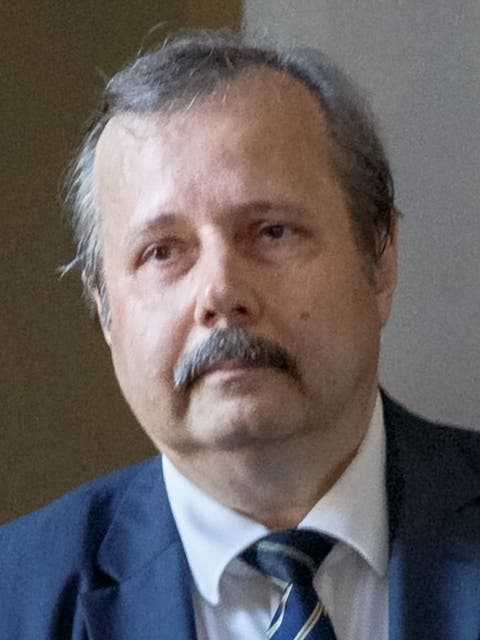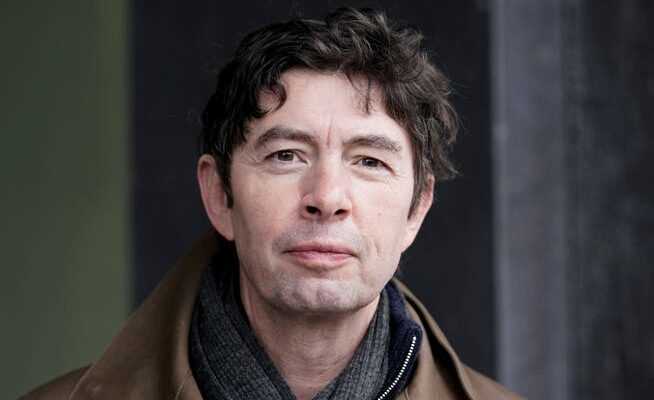The physicist Roland Wiesendanger had accused the virologist of misleading the public about the origin of the corona virus. He is not allowed to repeat this statement after a court decision, but he wants to appeal.
Germany’s best-known virologist Christian Drosten is currently involved in a legal dispute.
In legal terms, it’s just a “law of expression dispute”, but in fact it’s about an explosive question: Where does the corona virus come from? There is no definitive answer to this, but the debate about it keeps making waves. The latest chapter took place on Friday before the Hamburg Regional Court. There, the Berlin virologist Christian Drosten obtained an injunction against the Hamburg physicist Roland Wiesendanger in March. The court has now confirmed this. The physicist can no longer claim that Drosten misled the public about the origin of the corona virus.
However, Wiesendanger does not want to back down. According to media reports, he would like to appeal the verdict, which would then have to be decided by the Hamburg Higher Regional Court. It is not yet known how the Hamburg Regional Court came to its verdict against Wiesendanger on Friday. The justification should be submitted in writing.
The dispute began with an interview

The physicist Roland Wiesendanger triggered an international media echo with his thesis on the origin of the pandemic.
The conflict is about the limits of freedom of expression and freedom of the press. Wiesendanger’s allegations against Drosten certainly weigh heavily. “Mr. Drosten misled politicians and the media,” said an interview that Wiesendanger gave to the magazine “Cicero”. The conversation was published in February and has not been available online since the injunction. In an interview with the NZZ, Wiesendanger made relatively similar statements. Drosten and his lawyer only took action against the interview in “Cicero”.
The judgment of the Hamburg Regional Court is a partial success for Drosten. Although Wiesendanger can no longer accuse him of deceiving the public, according to the “Legal Tribune Online”, Wiesendanger can still claim that Drosten ran a “disinformation campaign” and uttered “untruths”. The court classified these statements as legitimate expressions of opinion. The same applies to the claim that Drosten has “the highest interest” in dispelling the suspicion that the corona virus came from a laboratory.
Drosten signed questionable text
The conflict between the two scientists revolves around a text that received worldwide attention and that appeared in the renowned journal The Lancet shortly after the outbreak of the pandemic. In the article, Drosten and other virologists claimed that the corona virus definitely did not come from a laboratory – and equated this scenario with a conspiracy theory. Her point of view was adopted by almost all scientists and media.
“That’s the tragedy of the whole story. The term ‘conspiracy theory’ was not brought into the world by the media, but by scientists,” said Wiesendanger in an interview with the NZZ. In his view, at this early point in the pandemic, it was impossible to make a solid statement about its origin. Wiesendanger also points out that behind the statement in “The Lancet” was the virologist Peter Daszak, who found himself in a conflict of interest: Daszak was involved in questionable research projects at the Institute of Virology in Wuhan. Wiesendanger and his followers believe an accident in the laboratory is the origin of the pandemic.
Apparently, so-called gain-of-function research took place there. These are experiments in which viruses are manipulated in the laboratory to make them more contagious. This research may serve to gain scientific knowledge, but it poses a huge risk to laboratories, since, in the worst case, manipulated viruses can escape.
Slight self-criticism from Drosten
Christian Drosten no longer seems to be entirely happy with the contribution to “The Lancet”. In an interview with the “Süddeutsche Zeitung”, the virologist said that he and the other signers of the contribution were not informed about some projects in the laboratory in Wuhan. “If I had known about it, I would have at least had questions before I signed.” Of course, the virologist does not want to be portrayed as someone who has intentionally duped the public.
That is understandable, but Wiesendanger’s claim that Drosten and other leading scientists have created a crooked picture with the contribution does not seem completely absurd. In any case, an analysis of several US secret services came to a different conclusion than the virologists: according to your assessment the corona virus could come from the animal kingdom, but also from a laboratory.
